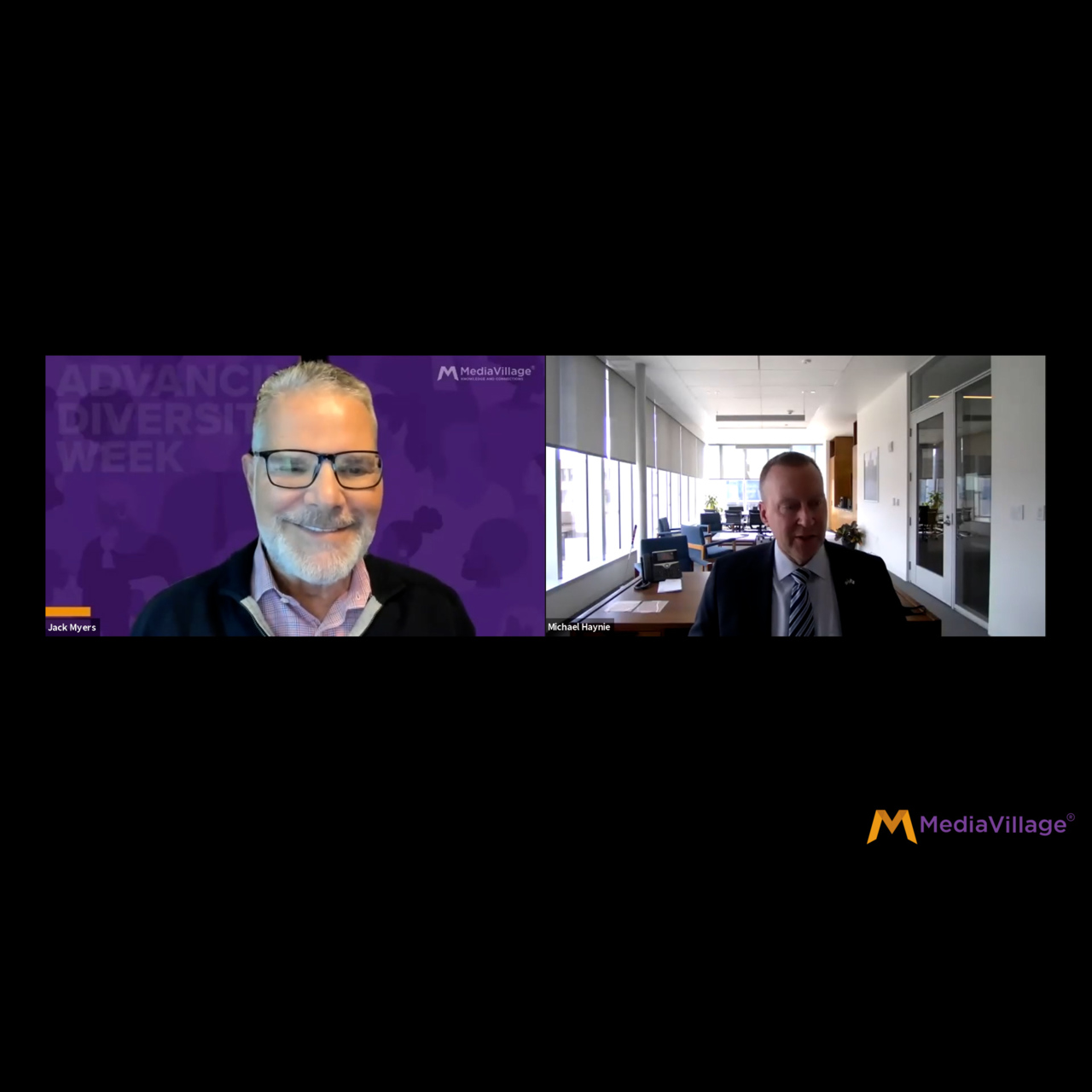Military Veterans: Leading Positive Change in Society and Corporations (VIDEO)

View Jack Myers' Advancing Diversity Week conversation with Michael Haynie, Director of the Institute for Veterans and Military Families at Syracuse University in the video above. On November 9, during Veterans Week, MediaVillage, AdvancingDiversity.org and NBCU are hosting a Career MeetUp with IVMF students and alumni.
"It's a missed opportunity on a national scale if you're an employer and you're not engaged with the veteran community. They can be a differentiating resource in your culture," commented Michael Haynie, Director the Institute for Veterans and Military Families at Syracuse University. In a discussion with MediaVillage founder Jack Myers titled "Fostering Support Systems for Veterans and Military Families," Haynie pointed out there are about 19 million veterans in the U.S., representing 10% of the total population. Military veterans are a racially and ethnically diverse group, with 12.6% of veterans identifying as Black; 7.69% Hispanic or Latino; 1.59% Asian-American; and 3.71% selecting another race or two or more races (2020 data from the Department of Veterans Affairs).
In coming years, the military will become an even more important resource for diversity hiring, with the percentage of Hispanic veterans growing to 16% by 2046 and the share of Black veterans rising to 15%, Pew estimates. When it comes to diversity and inclusion efforts in the workplace, military veterans are sometimes overlooked, but service members can lend valuable skills to any organization in the advertising, media and marketing industries. Veterans offer diversity in background, culture and life experience, which can elevate company culture and positive business results.
Women are emerging as a strong force in the veteran community. Currently, about 10% of veterans are female, but that number is expected to grow to 18% by 2046, Pew reports.
"The veteran community is inherently diverse by every metric you can apply to that term," Haynie noted. In another definition of diversity, he said a career in the military produces insights into how other communities work and live. Many service members are stationed overseas and interact with people from different cultures, religions, militaries and governments. They learn how to think both locally and globally.
"The global and cultural experiences that come from military service assure veterans are comfortable operating in global environments and operating effectively across cultures and contexts," advises Haynie, who served 14 years as an officer in the United States Air Force.
Syracuse University's growth story offers a lesson in how veterans can contribute to an organization or institution. Prior to World War II, the university was regarded as a regional institution with a small student body. After 12.5 million veterans returned home from the war and sought to take advantage of the G.I. Bill, Syracuse encouraged veterans to enroll. Within two years, S.U.'s student body grew from about 4,000 students to 18,000 students.
In that spirit, Syracuse created the IVMF in 2011 to support military members, veterans and their families with research, analytics, programs and support. The institute collaborates with the esteemed S.I. Newhouse School of Communications at Syracuse University, and they've created two Department of Defense-sponsored 10-month programs that provide active-duty service members with credentials in photojournalism and broadcast journalism.
As the overall cultural landscape has shifted, so too has the veteran experience. As the U.S. military has transformed into a volunteer-based force, Haynie said many Americans aren't "culturally competent" in relating to military life and veterans' experiences. That lack of understanding can make it difficult for veterans to find support among their corporate peers and managers. If executives, hiring managers and civilians can learn more about military life, it will foster a sense of belonging, Haynie said, and help veterans better integrate into the workplace.
While they're learning about military life, Haynie said Generation Z and Millennials can gain valuable professional insights from their veteran colleagues. He encouraged young professionals to seek out veterans, get to know them and engage them as allies. "In military service, the word service is important, it is ingrained in the DNA," he said. "They want to serve and want to be part of enacting positive change in our society."
Click the social buttons to share this content with your friends and colleagues.
The opinions and points of view expressed in this content are exclusively the views of the author and/or subject(s) and do not necessarily represent the views of MediaVillage.com/MyersBizNet, Inc. management or associated writers.


